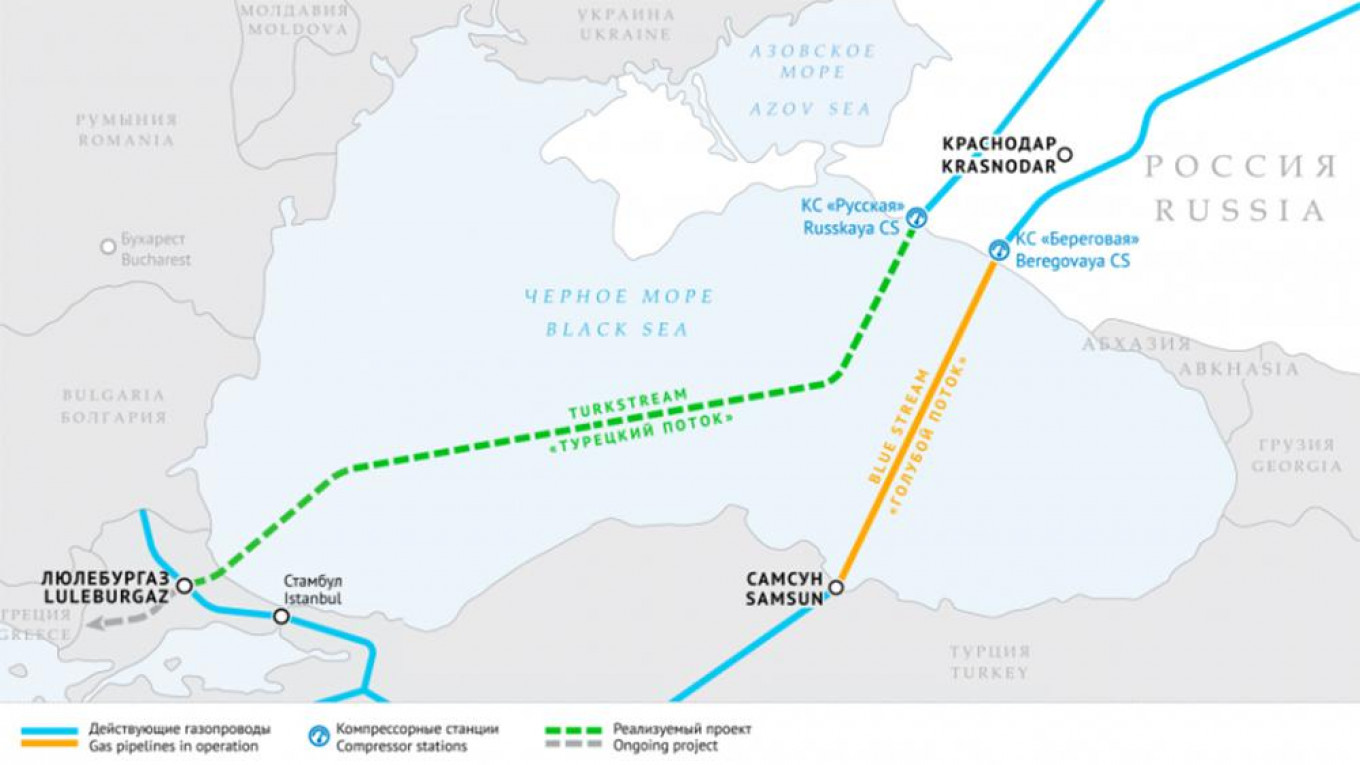Russia will start construction of the second line of the Turkish Stream gas pipeline, but only if the European Union provides legal guarantees, Russia's Foreign Minister Sergei Lavrov has told members of the business community.
Turkish Stream replaces South Stream, a pipeline that was due to run to Central Europe via the Black Sea and Bulgaria, but was scrapped in December 2014 under EU pressure because of Russia's annexation of Crimea that March.
Turkish Stream is expected to be constructed under the Black Sea, bypassing Ukraine, with one line aimed at supplying Russian gas to Turkey and the second line planned for the transit of gas from Russia to the EU. The route of the second line has not yet been finalized.
"Given the negative experience of the South Stream, we will be ready to do that work [to develop the second line of the pipeline] only after receiving firm legal guarantees from Brussels," the minister told the Association of European Businesses in the Russian Federation on Oct. 31, according to a foreign ministry statement.
Lavrov said that the growing needs of countries in Southern and Southeast Europe could justify the extension of the second branch of Turkish Stream to the EU.
“We see considerable interest in this from a number of EU governments … I still hope that common sense should prevail, because in the energy sector we are natural, interdependent partners,” he said.
Lavrov took a further pop at EU policy, saying it was “hardly necessary to say in detail that attempts to isolate Russia, to punish it for an independent foreign policy, to make it change have failed.”
The total cost of the project is estimated at $7 billion. Russian energy giant Gazprom has already signed roadmap agreements for pipeline development with Bulgaria, Serbia and Hungary.
In early September, Gazprom said that work on the Turkish Stream is moving ahead steadily and deals with contractor Petrofac for the construction of on-ground gas pipelines and a gas terminal near Kiyikoy in Turkey were signed.
The company also said that it will allocate 50 billion rubles ($854.2 million) for the Turkish Stream pipeline project in 2017, raising its original funding from 42 billion rubles.
A Message from The Moscow Times:
Dear readers,
We are facing unprecedented challenges. Russia's Prosecutor General's Office has designated The Moscow Times as an "undesirable" organization, criminalizing our work and putting our staff at risk of prosecution. This follows our earlier unjust labeling as a "foreign agent."
These actions are direct attempts to silence independent journalism in Russia. The authorities claim our work "discredits the decisions of the Russian leadership." We see things differently: we strive to provide accurate, unbiased reporting on Russia.
We, the journalists of The Moscow Times, refuse to be silenced. But to continue our work, we need your help.
Your support, no matter how small, makes a world of difference. If you can, please support us monthly starting from just $2. It's quick to set up, and every contribution makes a significant impact.
By supporting The Moscow Times, you're defending open, independent journalism in the face of repression. Thank you for standing with us.
Remind me later.






